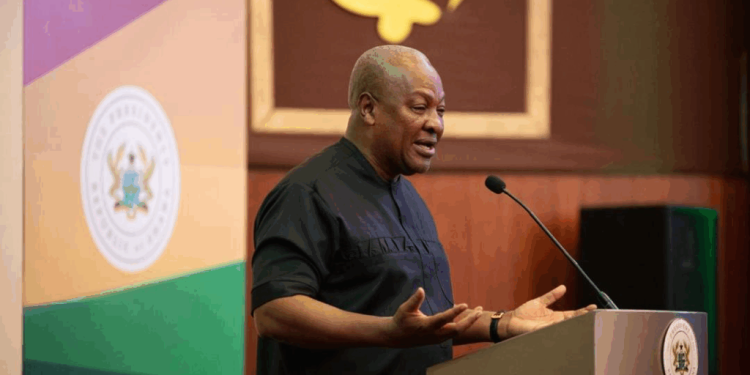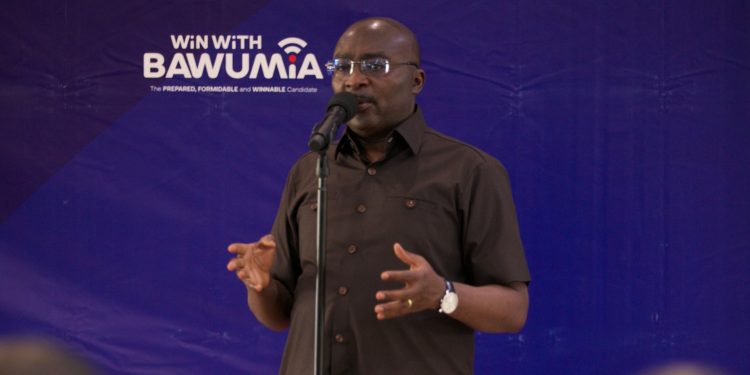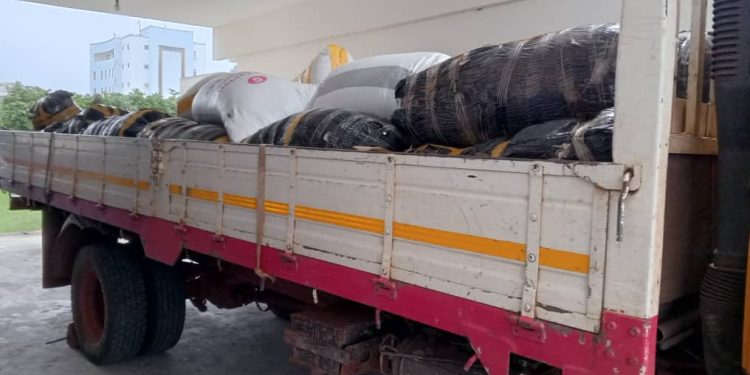President John Dramani Mahama isn’t mincing words when it comes to protecting Ghana’s sovereignty and reputation. Amid growing public concern over a recent wave of deportees arriving from the United States, Mahama has assured citizens that Ghana will not become a “dumping ground” for deported individuals—especially those with criminal records.
Speaking during the swearing-in of newly appointed Ambassadors and High Commissioners in Accra on Wednesday, the President addressed the backlash head-on, emphasizing that Ghana’s agreement with the U.S. remains both limited and tightly controlled.
“Ghana will not, and I repeat, will not become a dumping ground for deportees, nor will we accept individuals with criminal backgrounds,” Mahama said firmly.
The statement comes in response to criticism from lawmakers and citizens after Foreign Affairs Minister Samuel Okudzeto Ablakwa confirmed on September 17 that another group of 40 deportees would soon arrive in Ghana. This followed an earlier batch of 14, accepted without prior parliamentary approval—a move that sparked outrage, particularly among opposition MPs.
But Mahama insists there’s no cause for alarm. The deportations, he explained, are governed by a standing Memorandum of Understanding (MoU) with the U.S. that does not require ratification by Parliament. All returnees, he said, are “thoroughly screened” and vetted before being allowed entry.
“Our understanding with the U.S. does not undermine our sovereignty, security, or stability,” Mahama said. “It is limited, carefully vetted, and aligned with our ECOWAS protocols.”
Minister Ablakwa previously described the arrangement as “humanitarian,” stressing that Ghana is acting in solidarity with fellow West Africans who have faced mistreatment abroad. Mahama echoed this sentiment, framing the agreement as part of Ghana’s Pan-African commitment to regional cooperation—while also drawing a clear line on national dignity and safety.
“We’re balancing compassion with caution,” Mahama said. “Ghana’s doors are not open to those who would threaten our peace or security.”
In a broader message to the country’s diplomatic corps, Mahama urged newly sworn-in envoys to take an active role in shaping Ghana’s global image.
“Diplomacy isn’t just about protocol—it’s about perception,” he said. “Your job is to tell Ghana’s story with conviction, credibility, and pride.”
Mr. Mahama concluded by encouraging the ambassadors to project Ghana as a beacon of democracy, innovation, and resilience in the region: “Let the world know that Ghana is a land of opportunity, a place where our people are determined to create jobs, restore dignity, and build a future we can all be proud of.”
The message was clear: Ghana may be welcoming—but not to everyone, and not at any cost.













